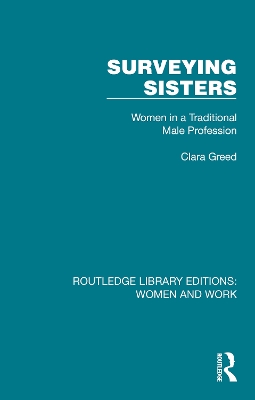Routledge Library Editions: Women and Work
1 total work
Over the past few years there had been a dramatic increase in the number of women entering the surveying profession. Fewer than five per cent of practising surveyors were women, but women comprised twenty per cent of students. Originally published in 1991, Surveying Sisters explores the question of whether ‘more’ would mean ‘better’, either for women surveyors themselves, or for women as consumers of the built environment.
Clara Greed investigates the experiences of individual women surveyors, as well as studying the nature of the male majority. Taking a broadly feminist perspective and using an ethnographic approach, she develops a strong theoretical basis, incorporating the gender, class, and spatial dimensions of the situation, centring round the concept that surveying has its own distinct professional subculture. She traces the historical roots of the profession, and its attitudes to women, and makes constructive suggestions for improving the position of women surveying today.
This was a highly topical study, at a time when the surveying profession was eager to attract more women in order to allay the effects of declining numbers of school leavers and potential ‘manpower’ shortages. It will be of interest to people concerned about issues of gender in disciplines such as sociology, management studies, higher education, urban geography, and women’s studies, and to the women and men who work in the surveying and other built environment professions.
